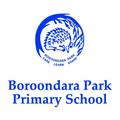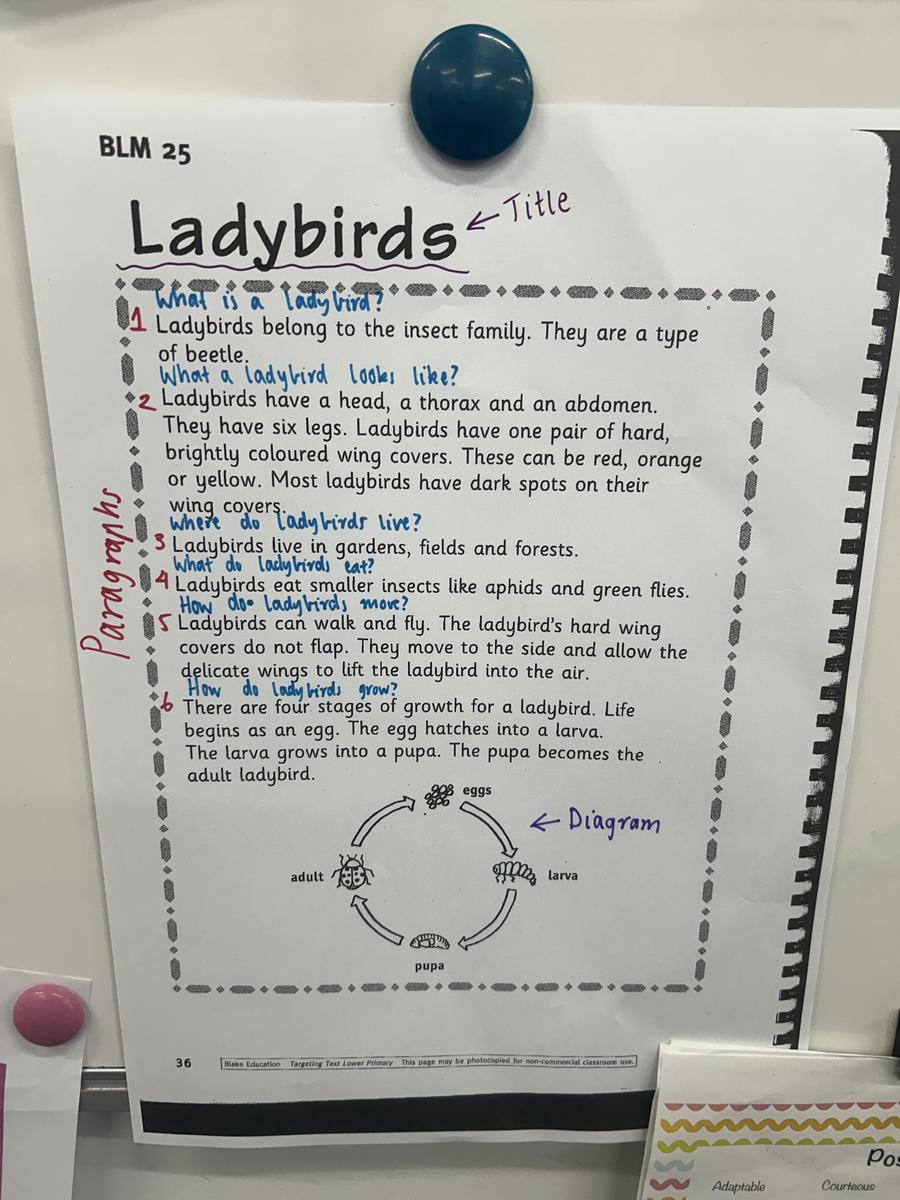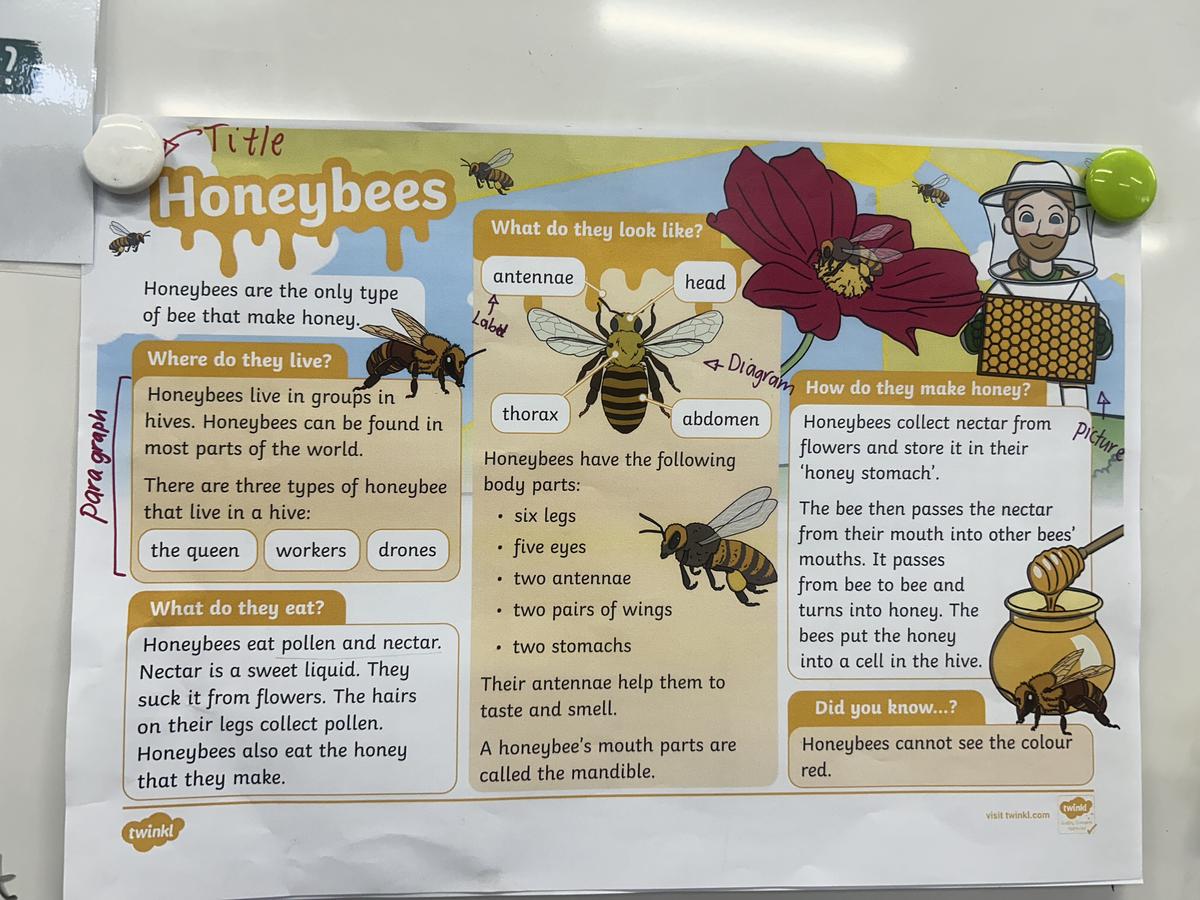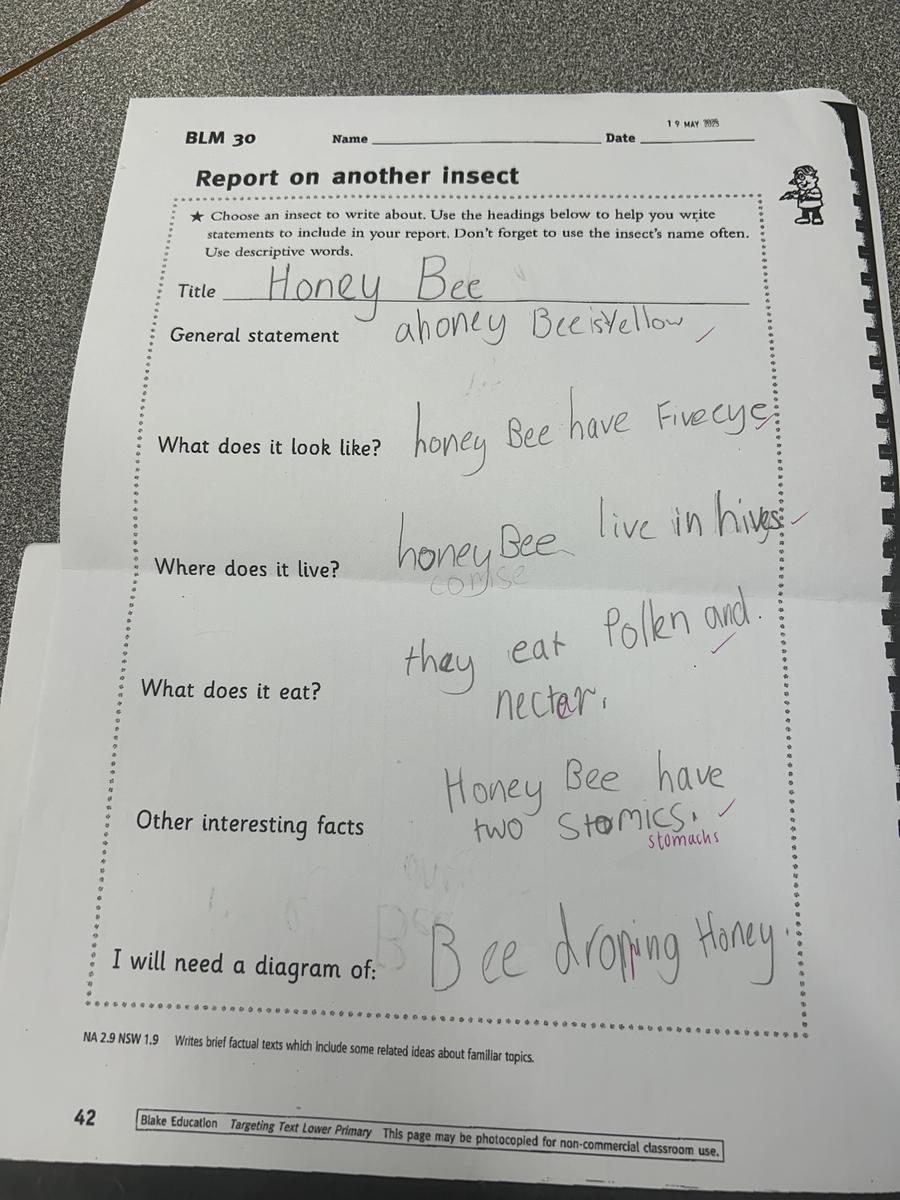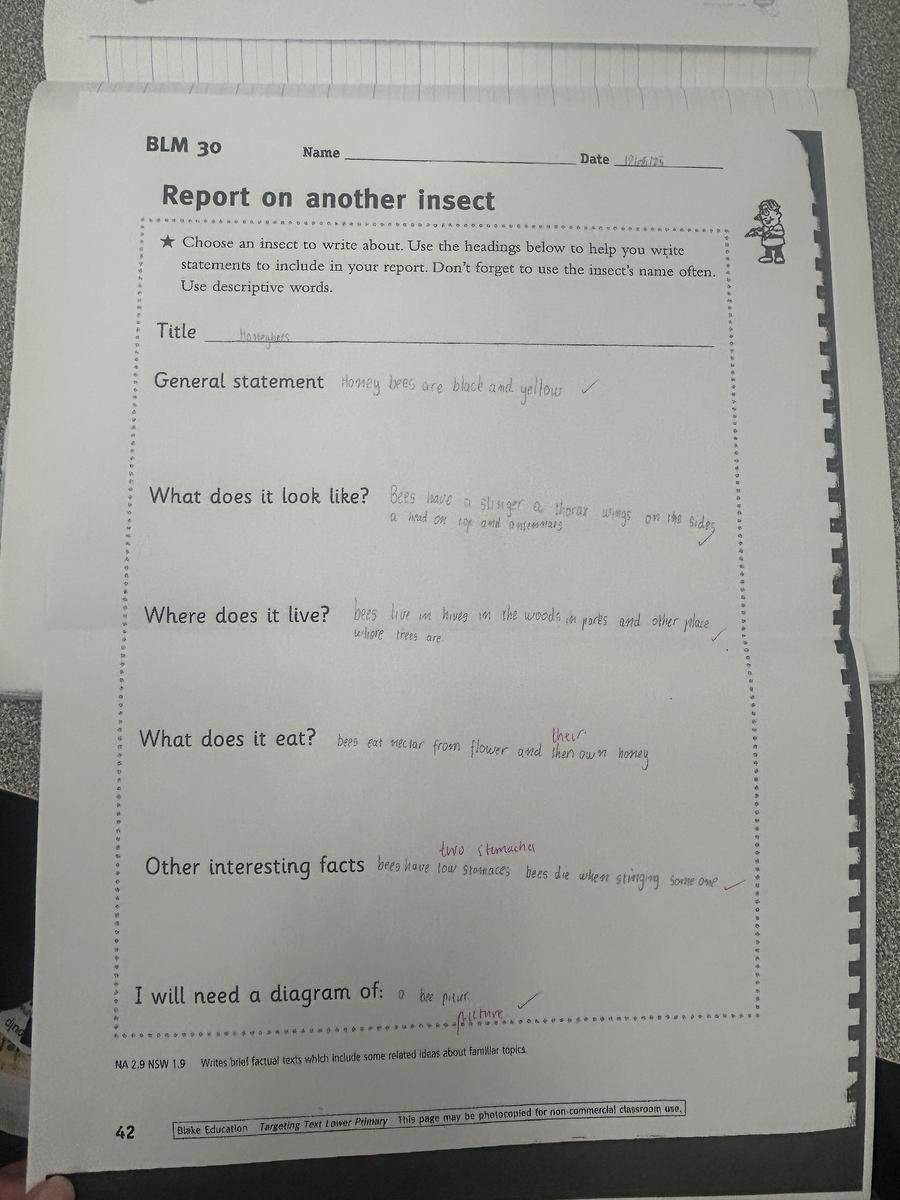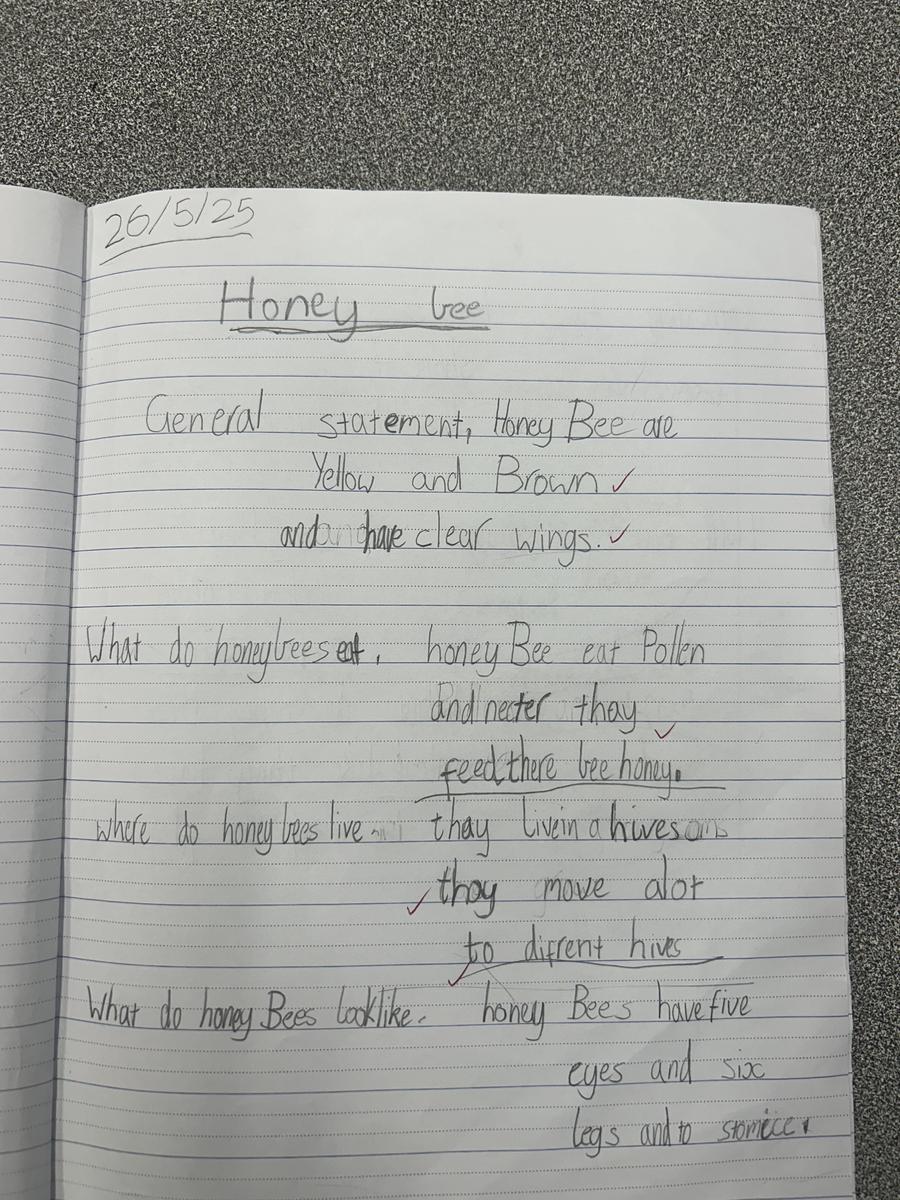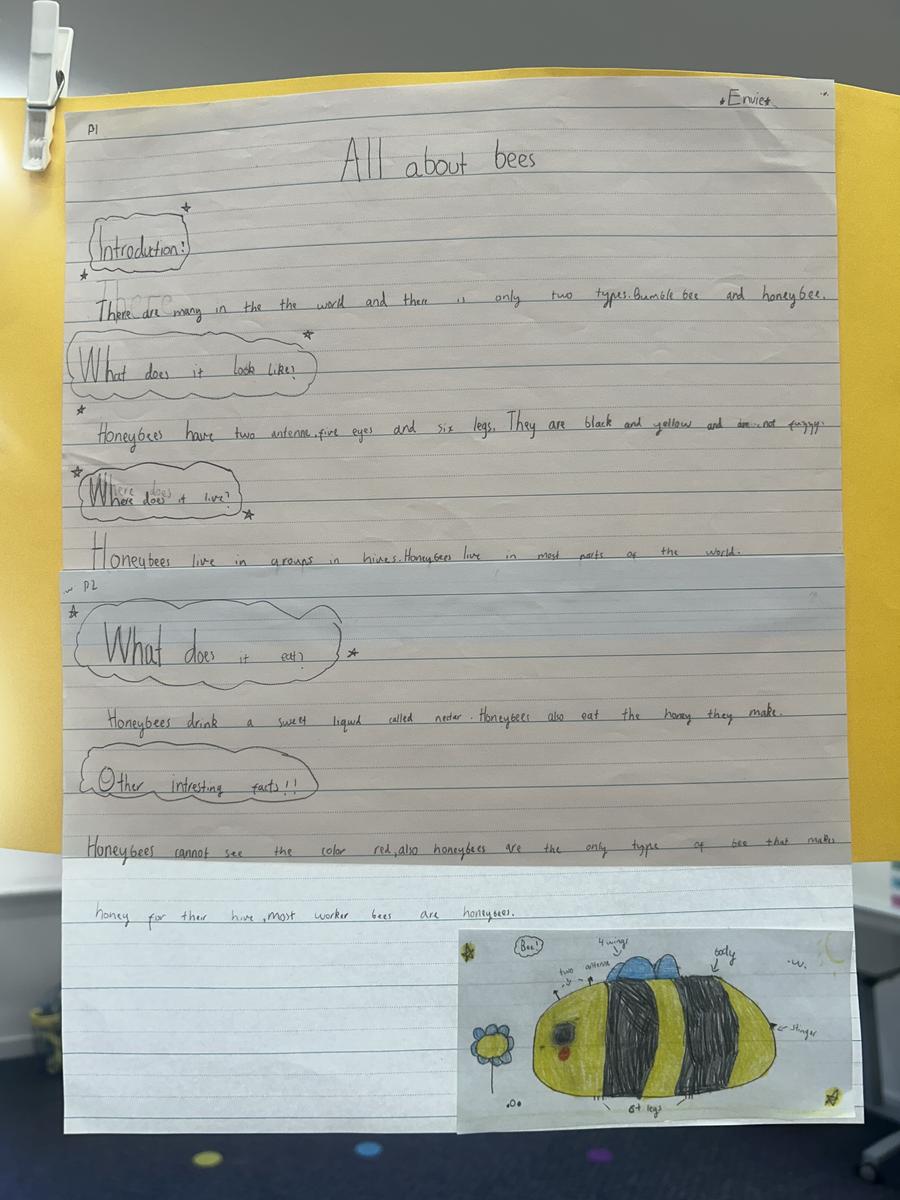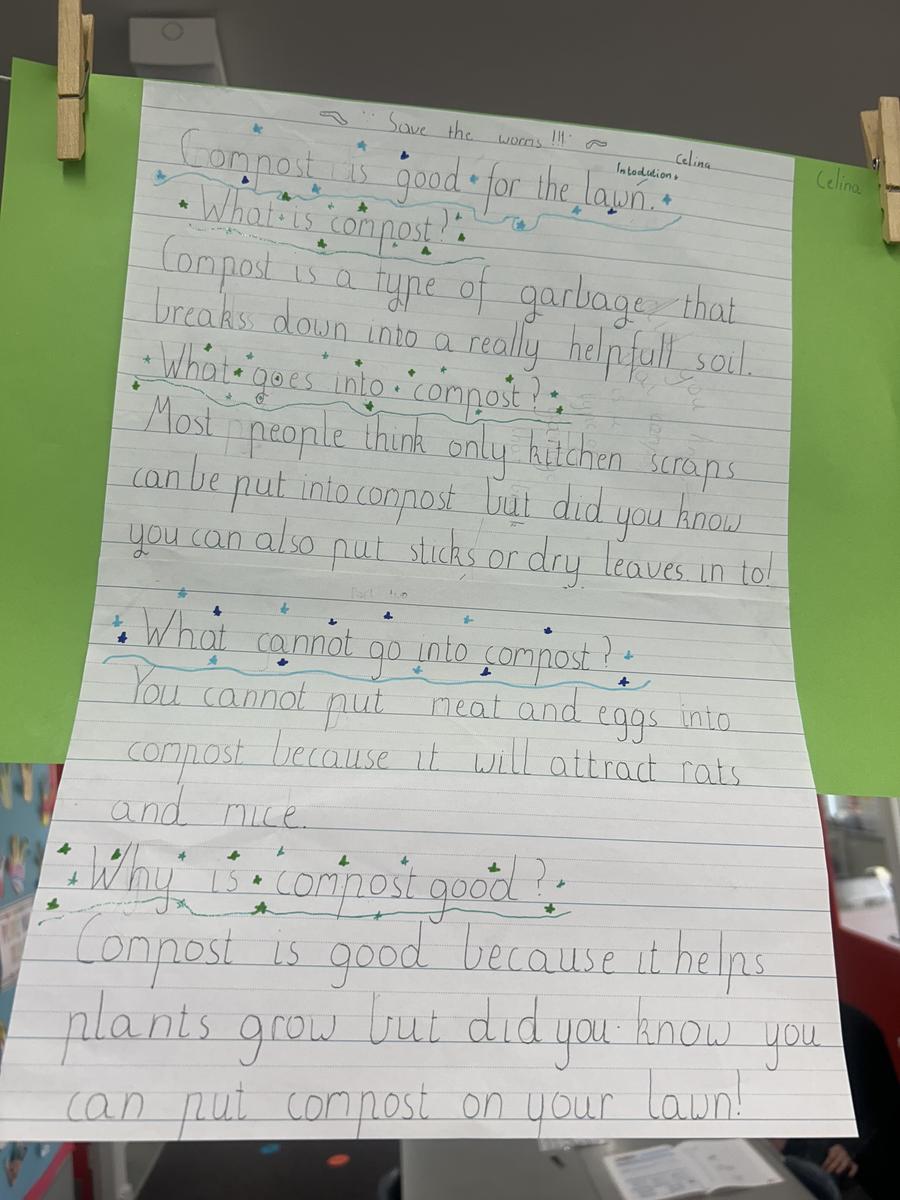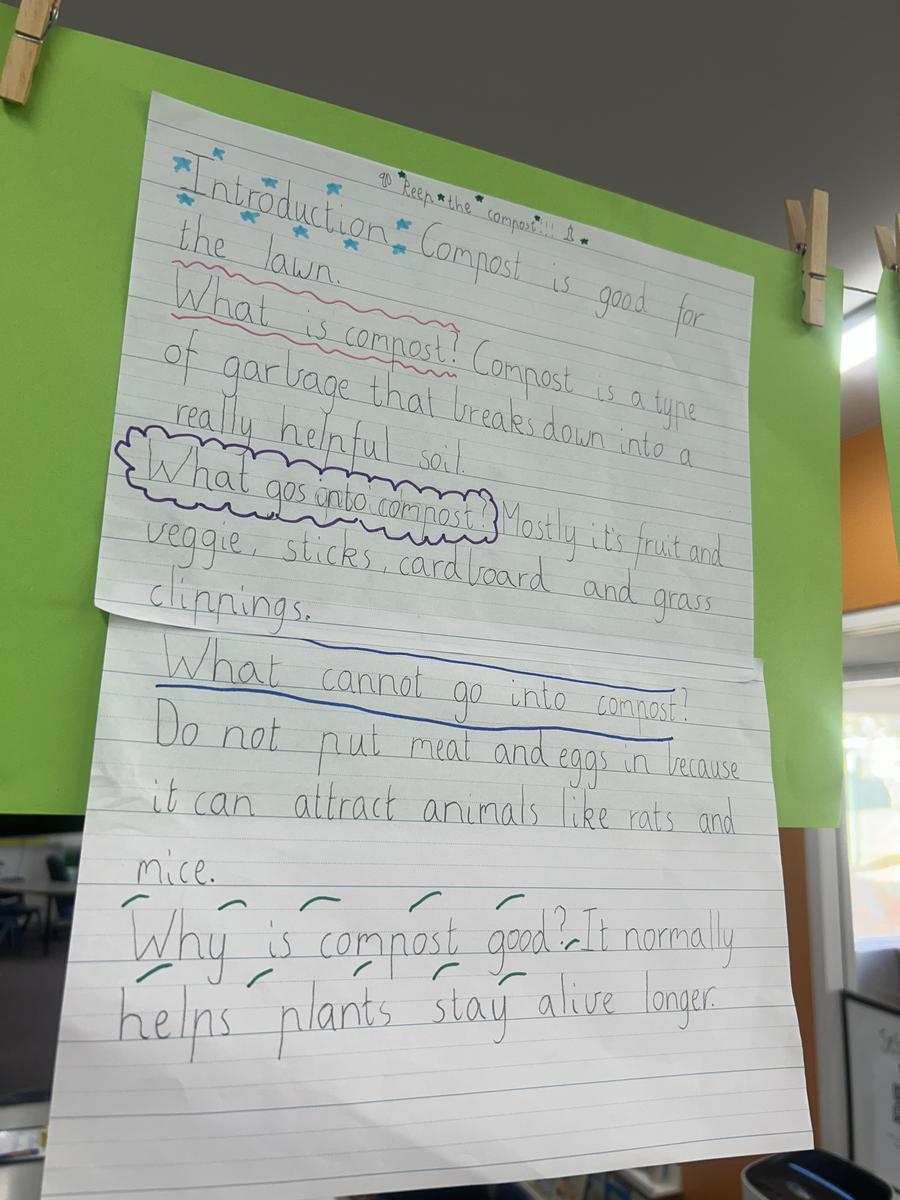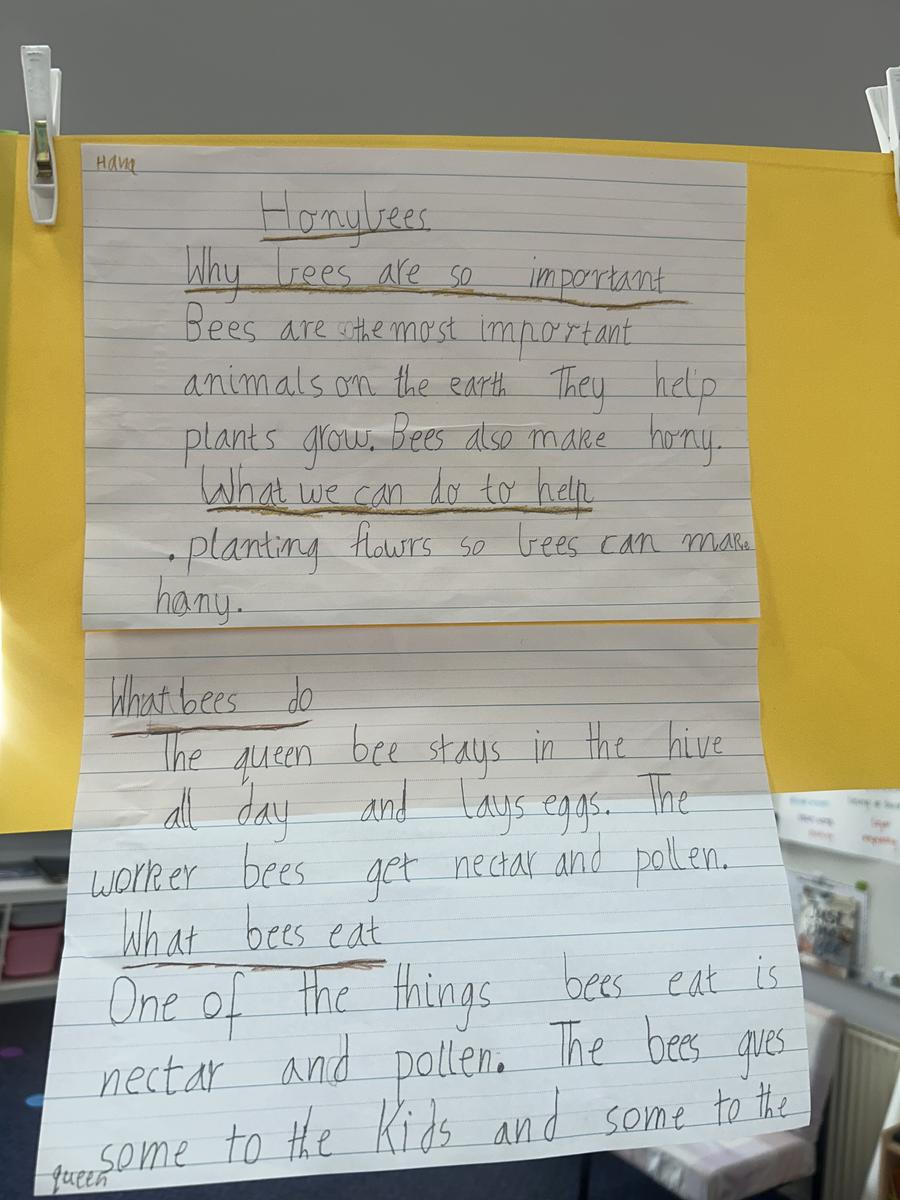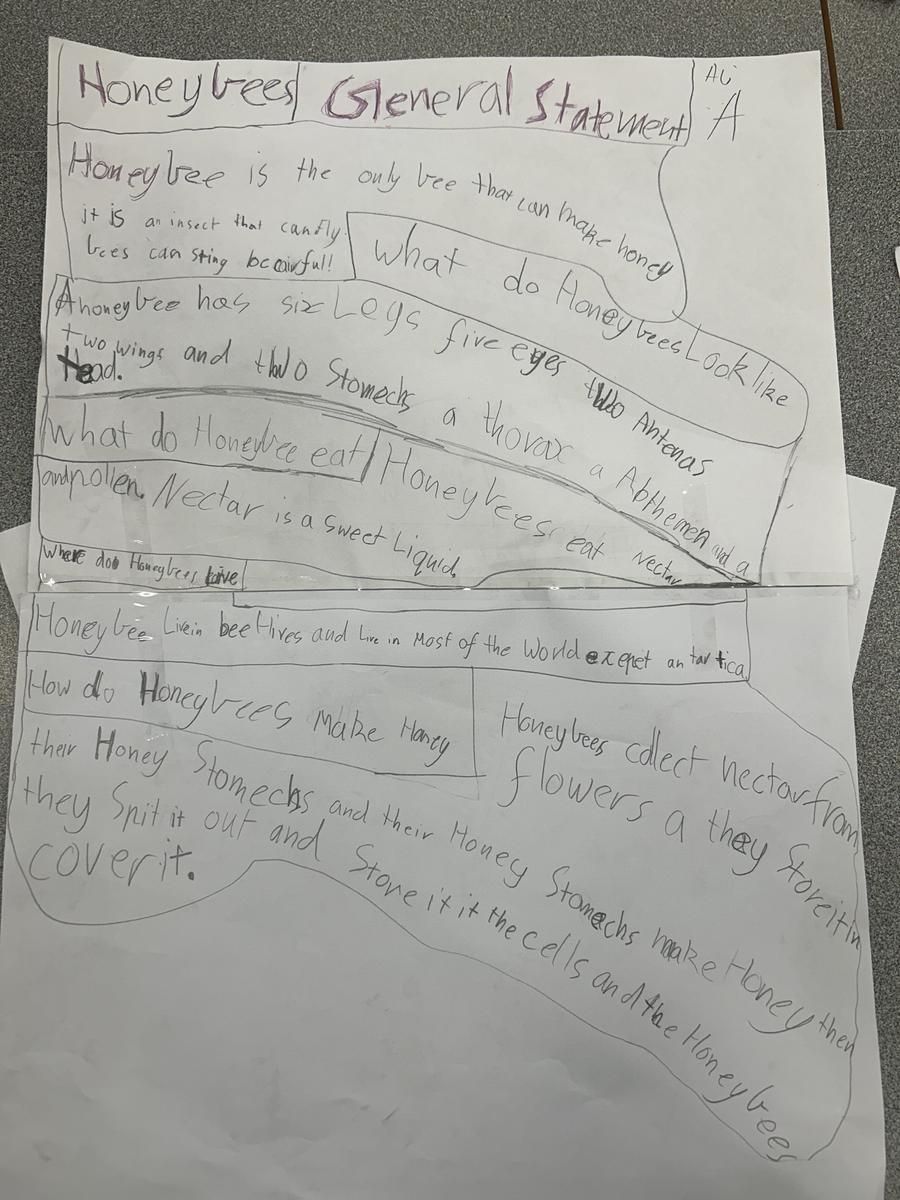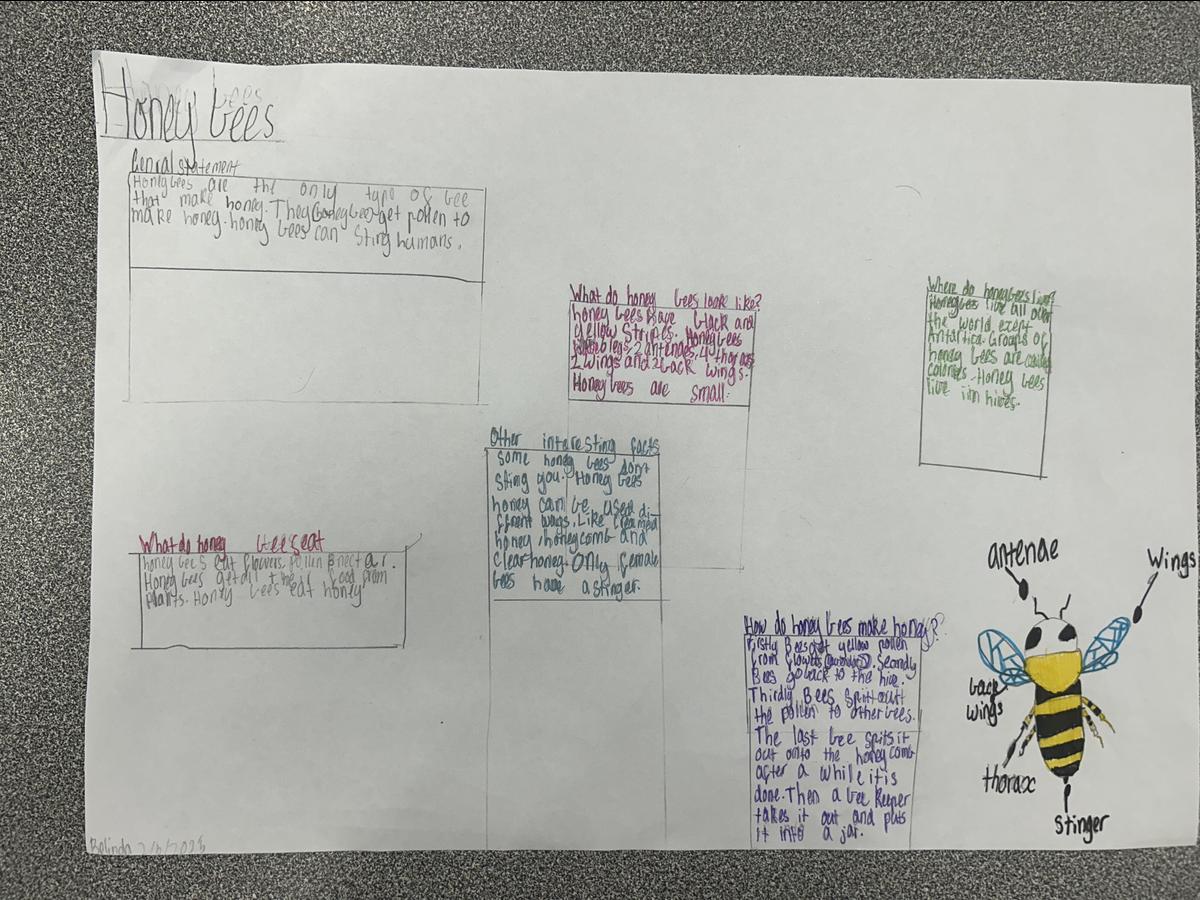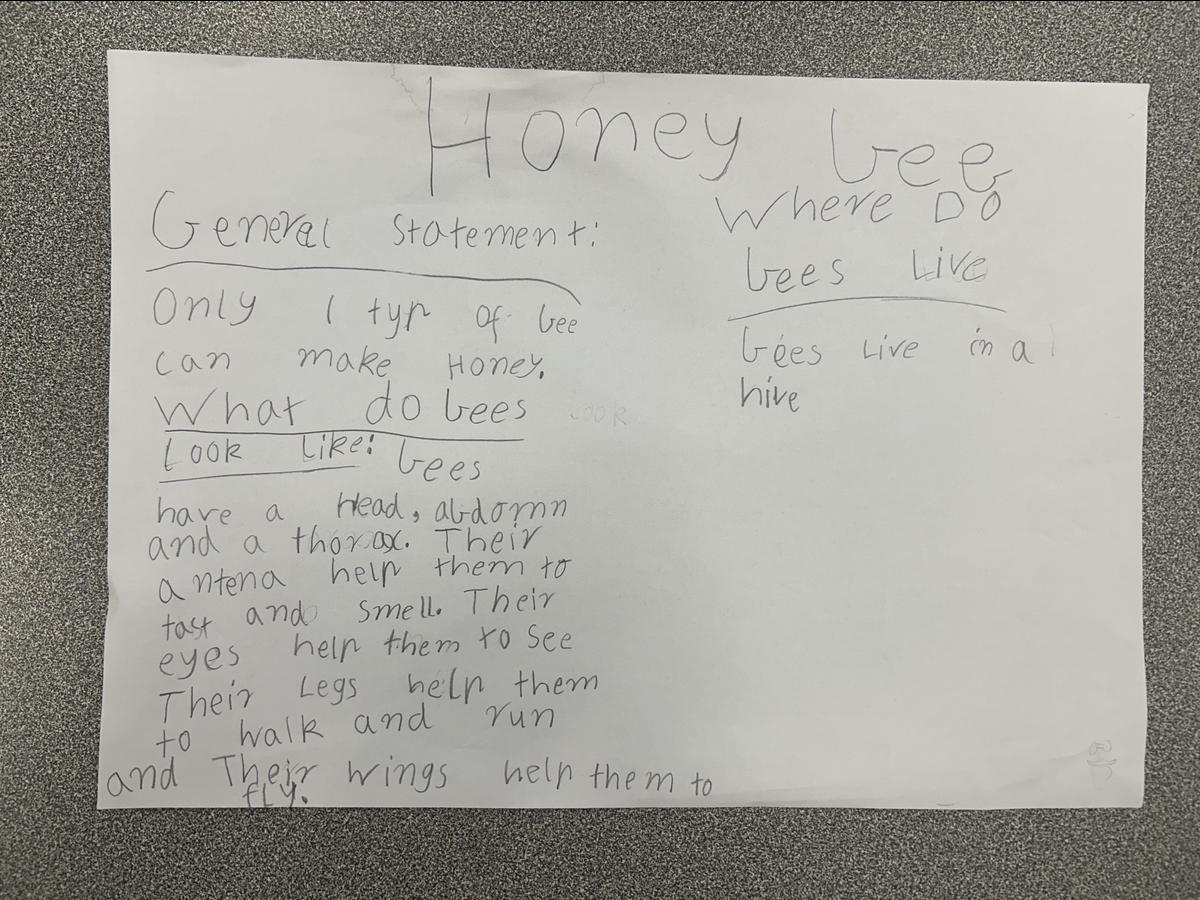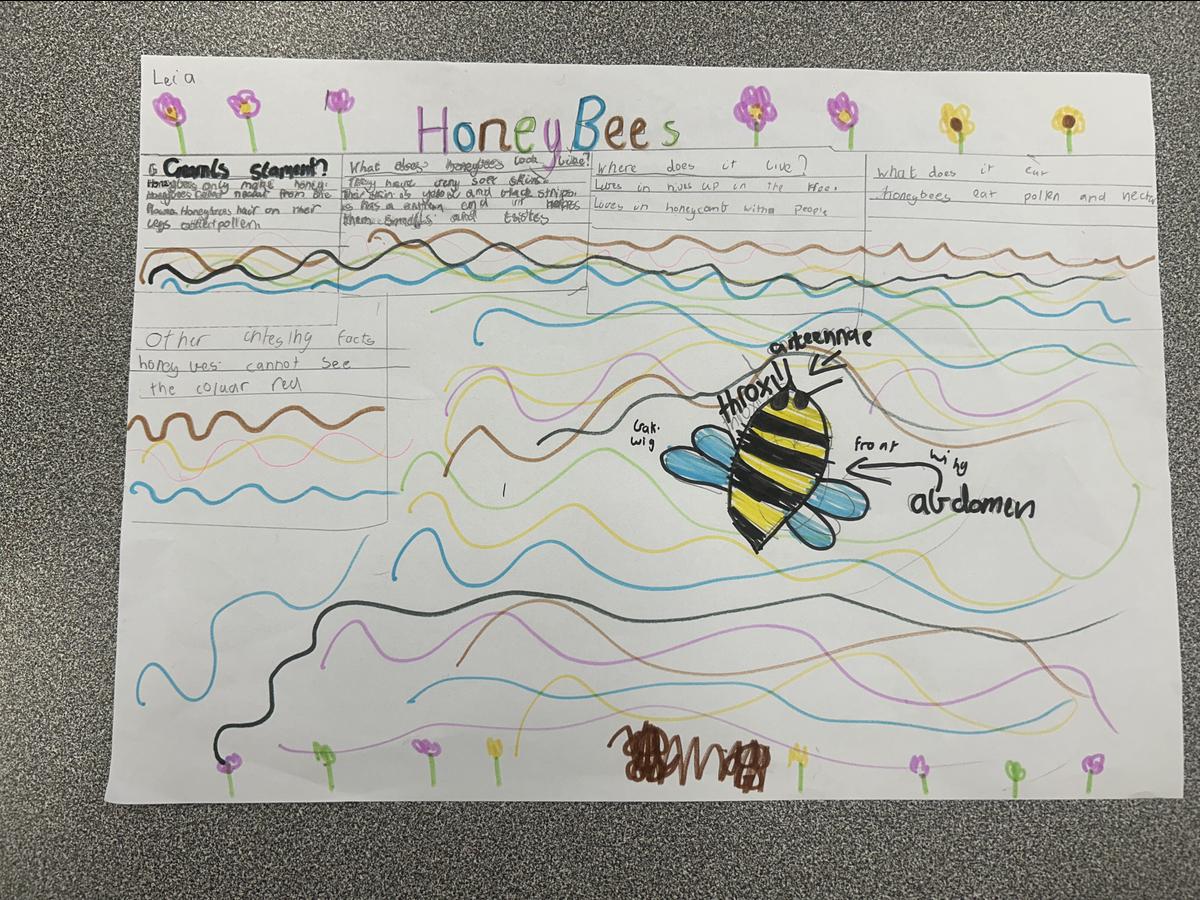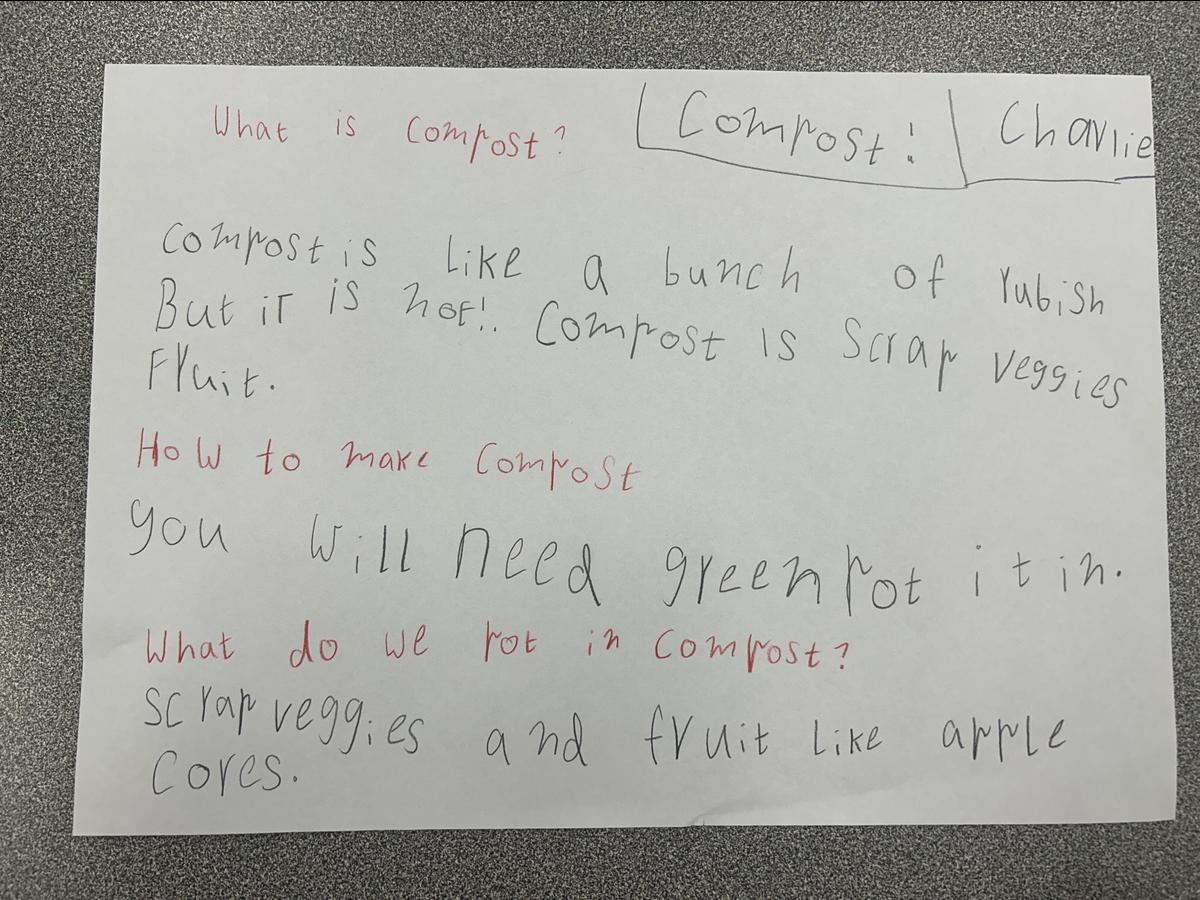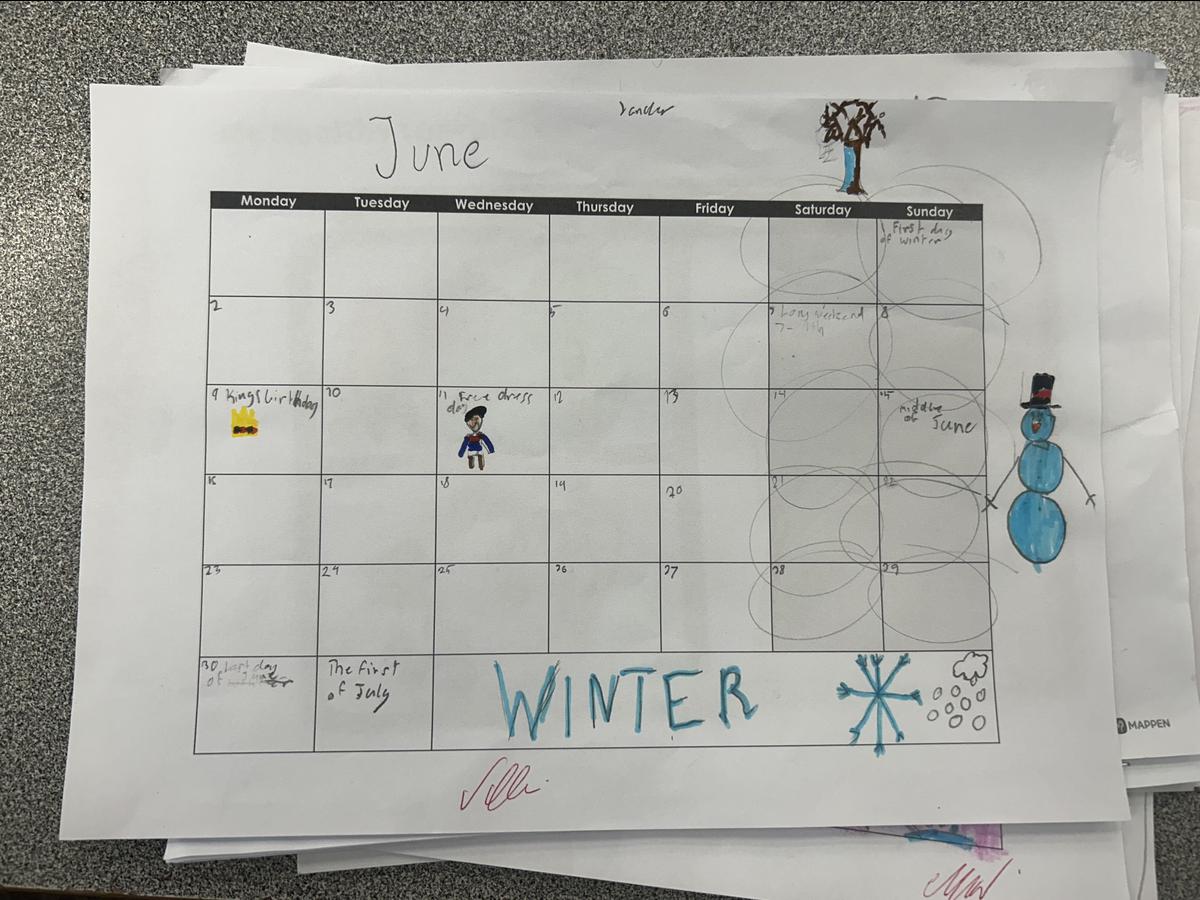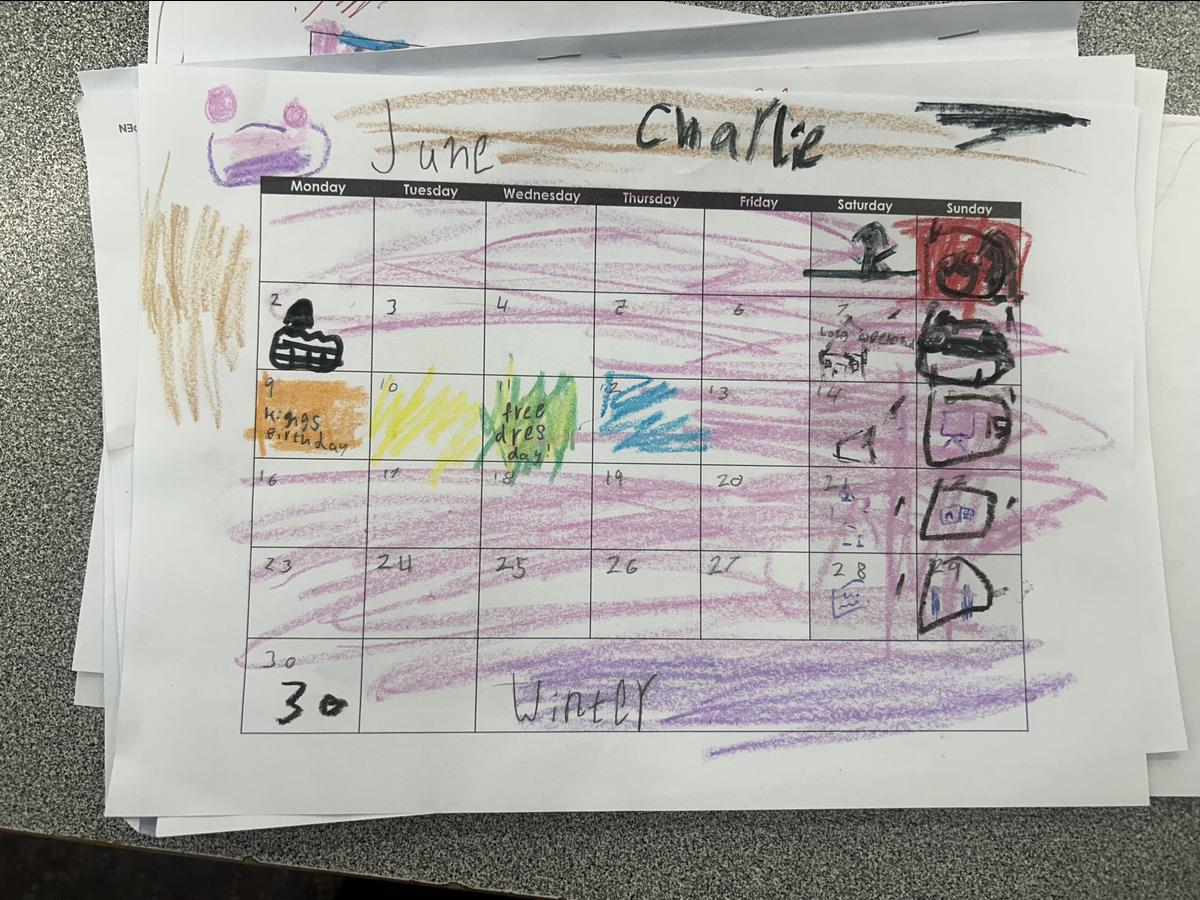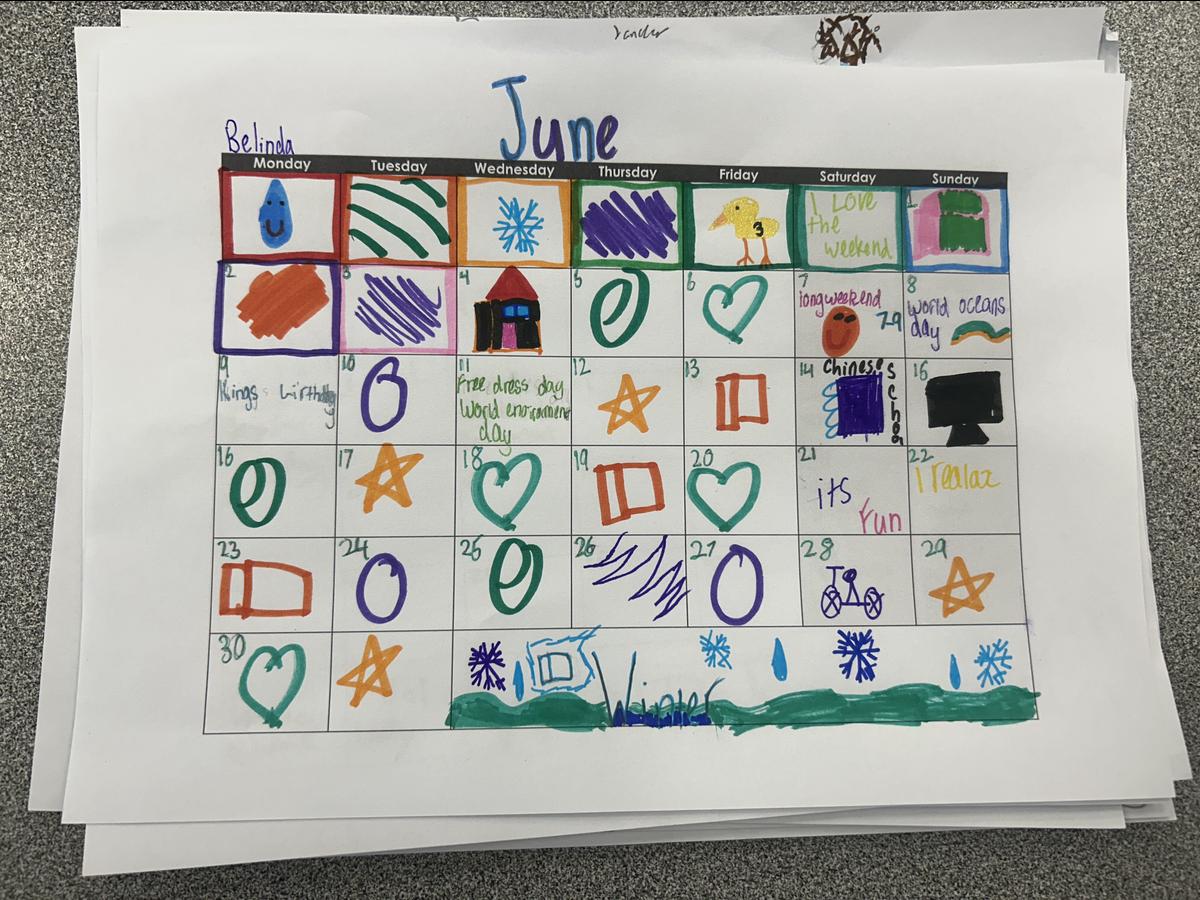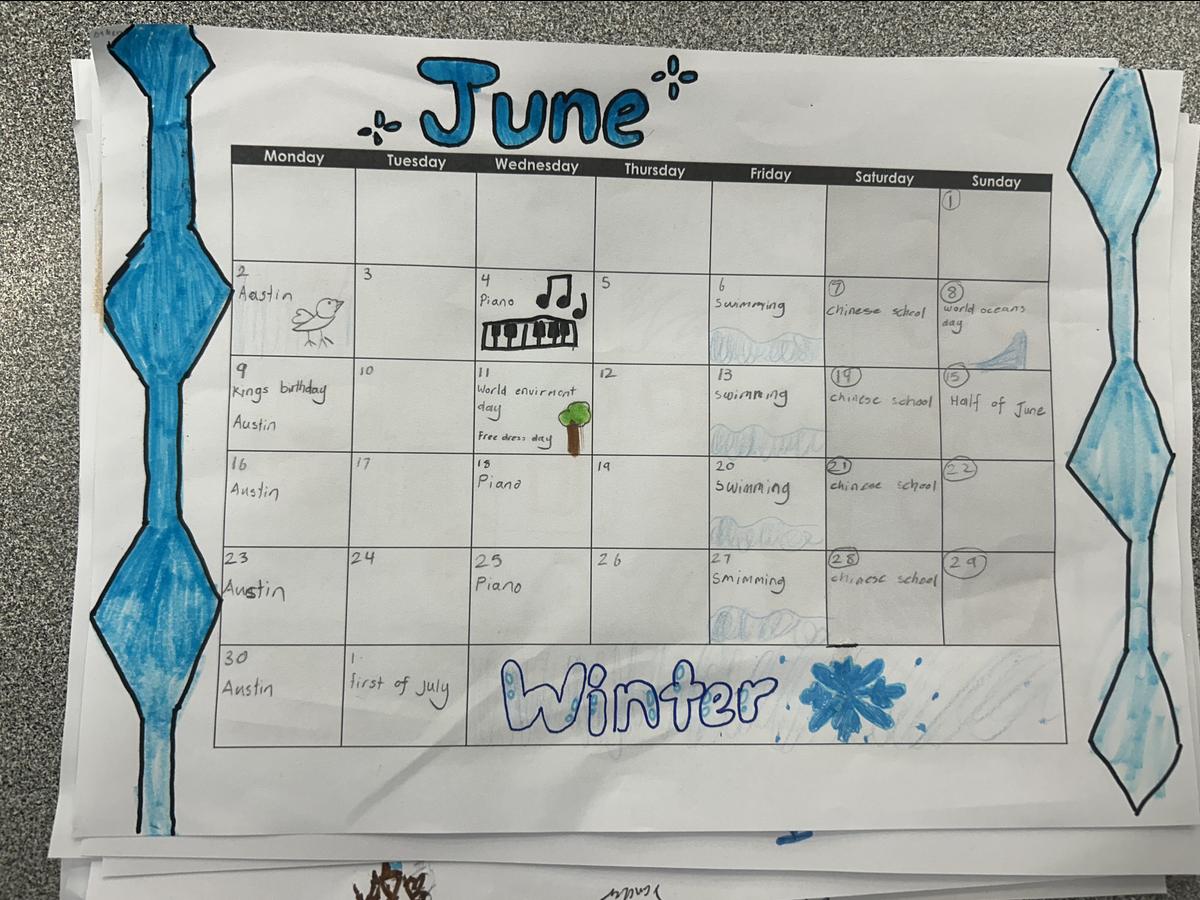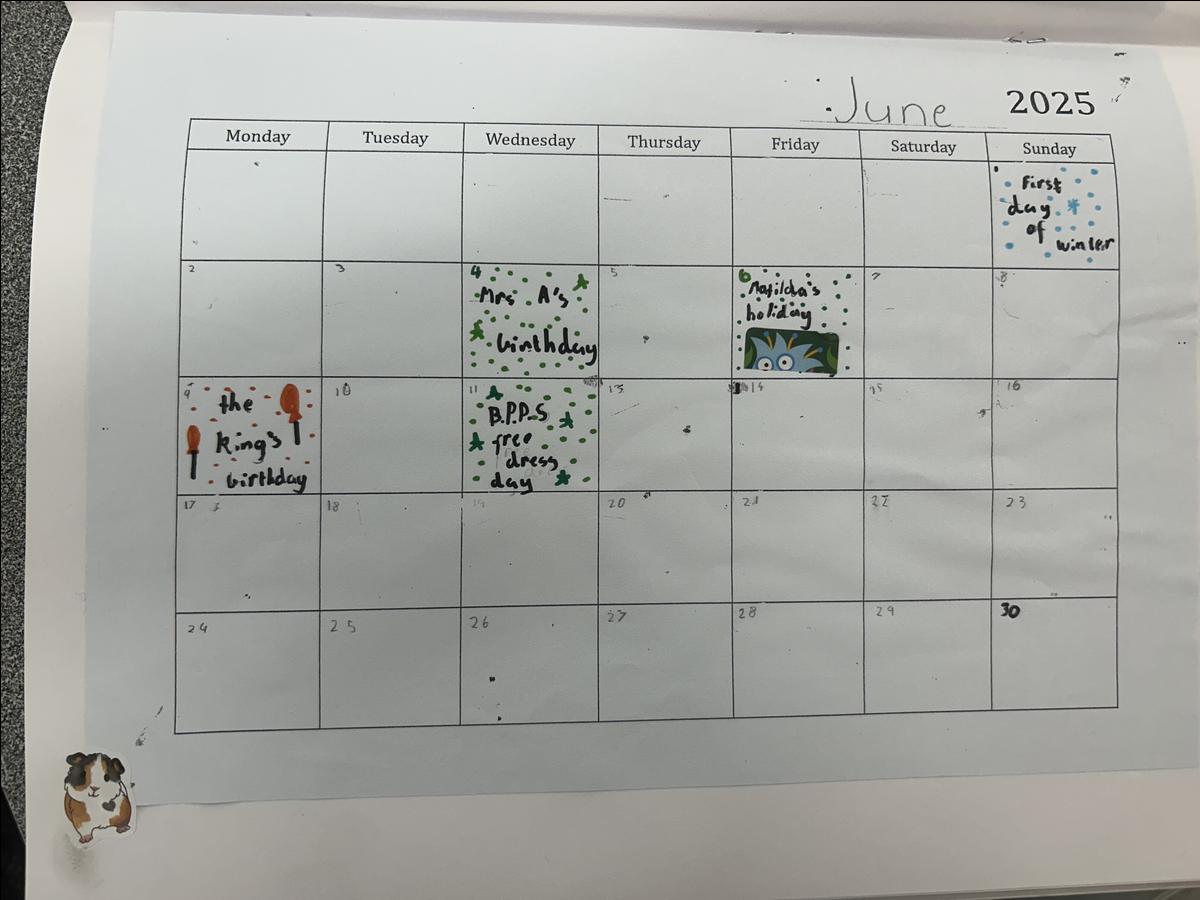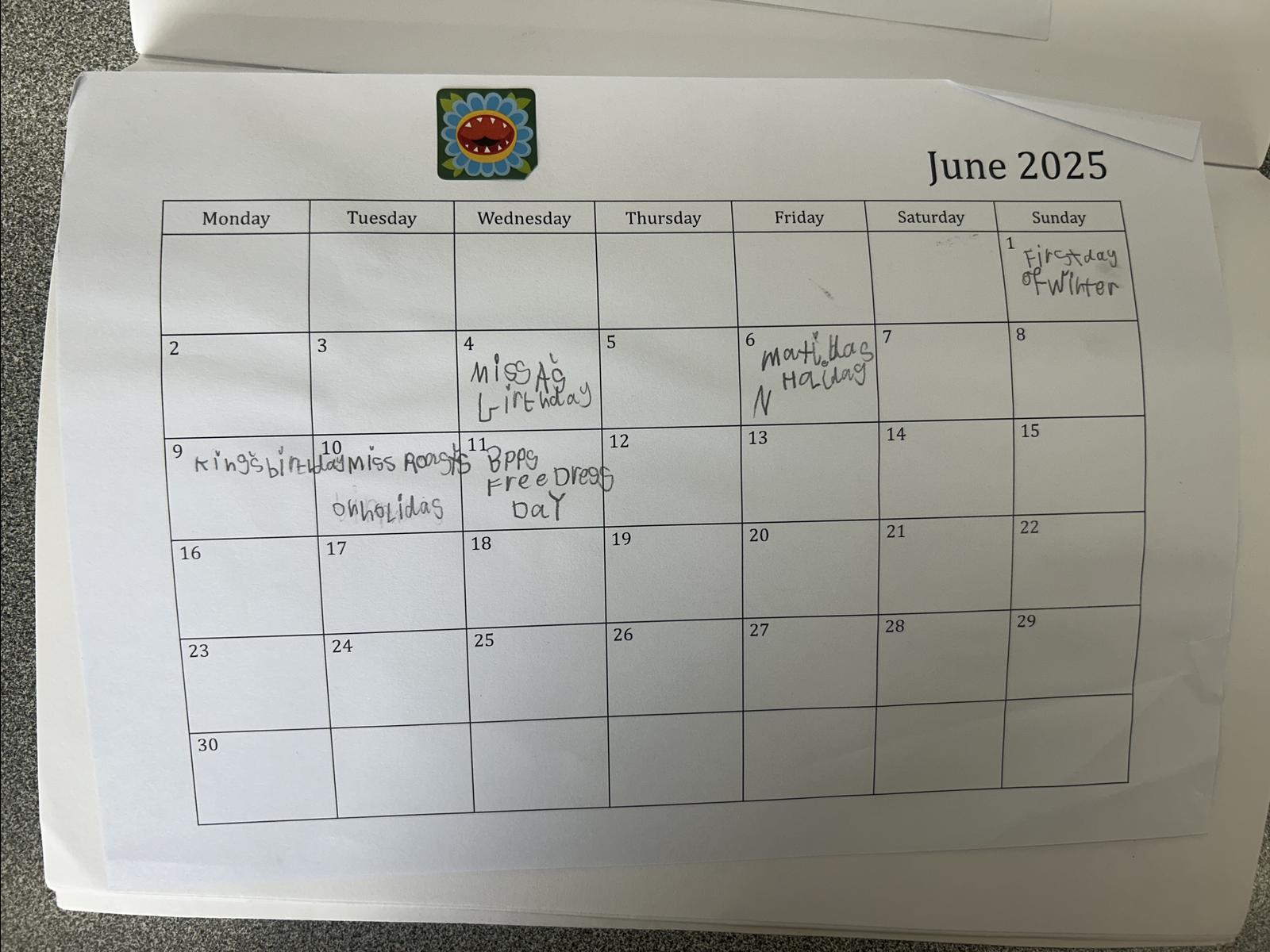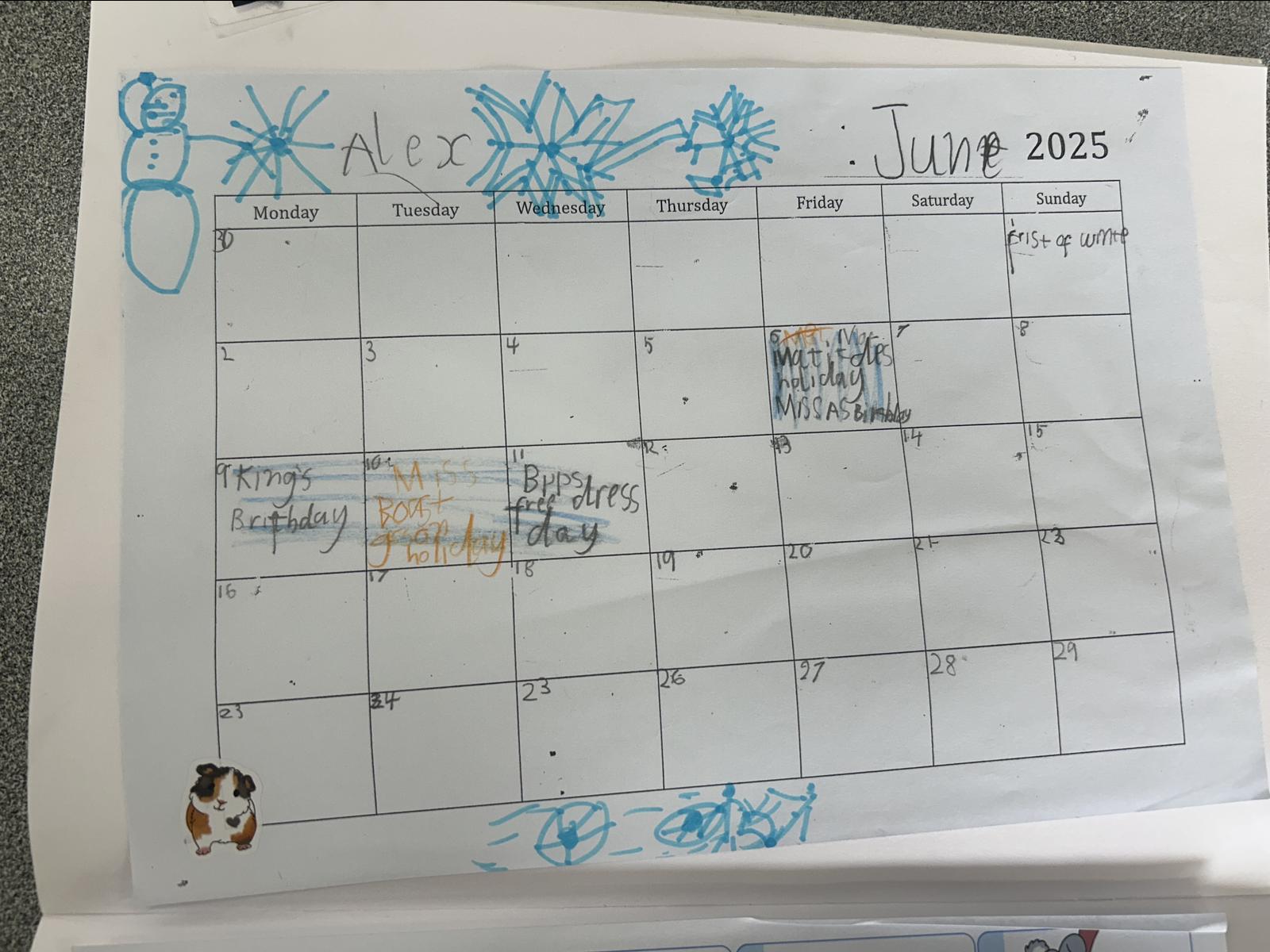From the 1/2 Classrooms
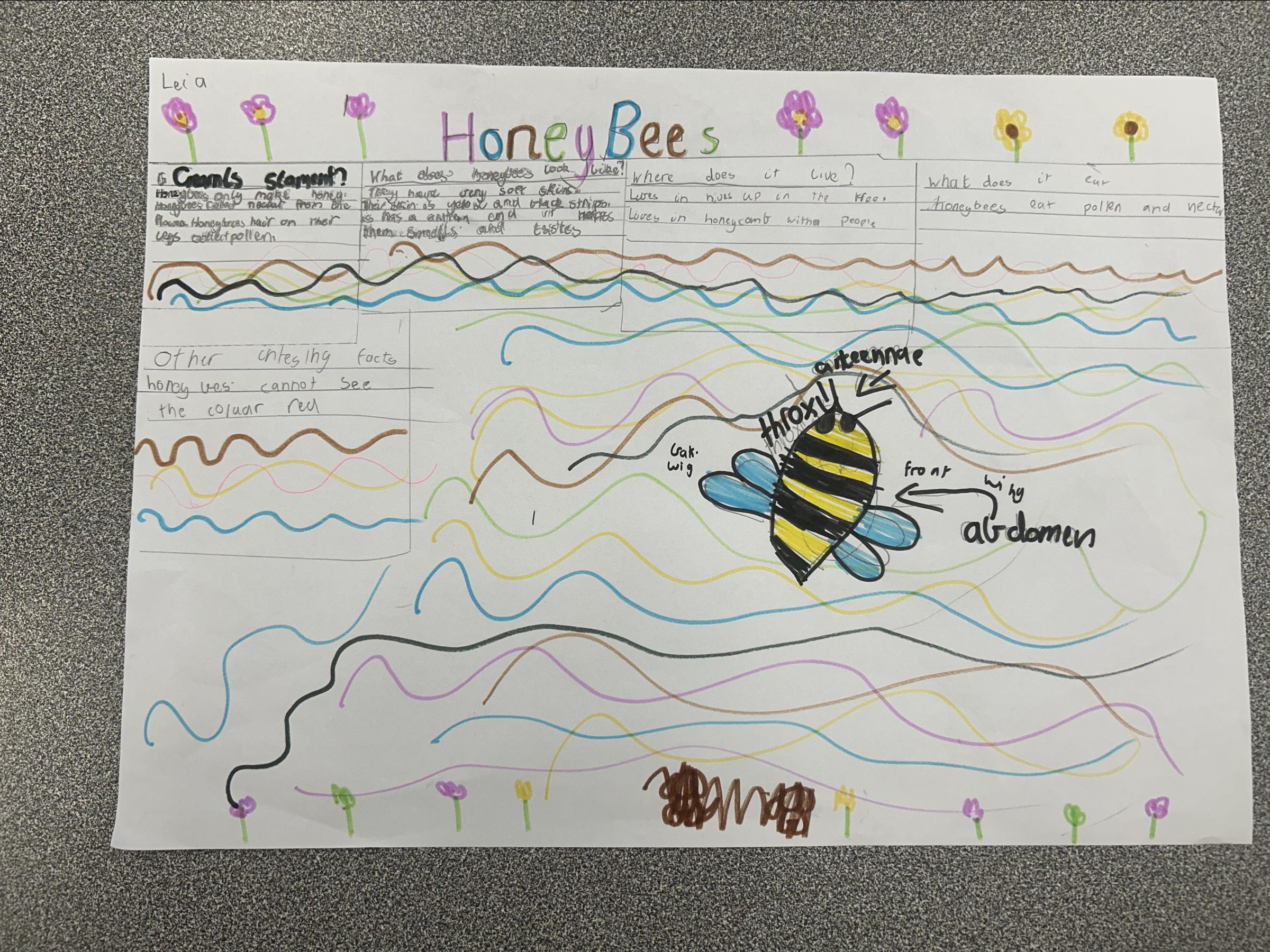
Welcome to Week 8! We hope everyone had a restful and relaxing King's Birthday long weekend :)
Literacy- Information texts:
Over the last few weeks in Literacy we have been looking at information texts, these texts serve a purpose of informing the reader or explaining about a topic. In reading groups, students have been reading a variety of information texts looking at the different features. Students have been looking at identifying and understanding the purpose of different features including;
- contents page
- index page
- title
- subheadings
- captions
- glossary
- diagram
- pictures
We have looked at information texts on ladybirds, honeybees and composting, all topics linking back to our Integrated Studies topic, Raw to Ready. Students have been identifying the information text features in each of these topics.
Students then began planning their own information text. Students were given an information text and had to come up with their own dot points of important information for each subheading. It was great to see students identifying the important information from the overall text and understanding which subheading the information belonged to.
Then students began to write their own draft of an information text on either honeybees or compost, using information they had gathered during reading group activities. We brainstormed different subheadings students could include and revisited what features of an information text they would need to include. One of the most important parts of an information text is the general statement, this is a short summary of what the information text will be about.
After drafting our information texts, we began writing our final copies. Students were able to include features such as a title, paragraphs, diagram and subheadings.
The students have really enjoyed learning about and writing their own information texts, here are a few of our favourite things we've learnt:
Belinda- information text have mini subheadings
Yining- bees have two stomachs and 5 eyes
Avnee- compost is made from dead plants
Leia- only honeybees make honey and collect pollen
Eliza- only bees make honey
Elise- information texts have facts
Jacqueline- I learnt what a caption is, they are information about the picture
Ali- only honeybees make honey
Zen- how bees measure time on earth
Heidi- honeybees have a thorax
Ruby- bees can't see the colour red
Salote- adjectives make information texts more exciting
George- a general statement is a couple of sentences about the whole text
Amelia- there are paragraphs, each paragraph is about a different sub topic
Myra- an adjective is a word which describes something, they are important in information texts
Xander- I learnt how to make compost
Alex- I learnt food scraps go in compost
Dakota- bees have stinky feet
Envie- I learnt bees cannot see the colour red
Jaime- leaves can go in compost bins
Jayden- bees make honey, and I like honey
Jaime- green and brown layers go in compost
Rayan- bees fly super high
Tida- bees make honey and honeybee is the name of the bee who makes honey
Rosha- bees have stinky feet
Matilda- meat and eggs attract mice and rats into compost so don't put these in your compost bin
Celina- compost breaks down into a helpful soil
Numeracy- June Calendar
In Numeracy, each month we have been creating a calendar page to create a 2025 calendar at the end of the year. Last week and this week we have been working on this month's page for June. We discussed what events occur in June, what the last date of June is, what season June is in, and who in the class has a birthday in June. What events does your family have in June?
Thank you for reading!
Kind regards,
Grade 1 and 2 Teachers
